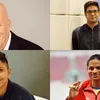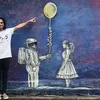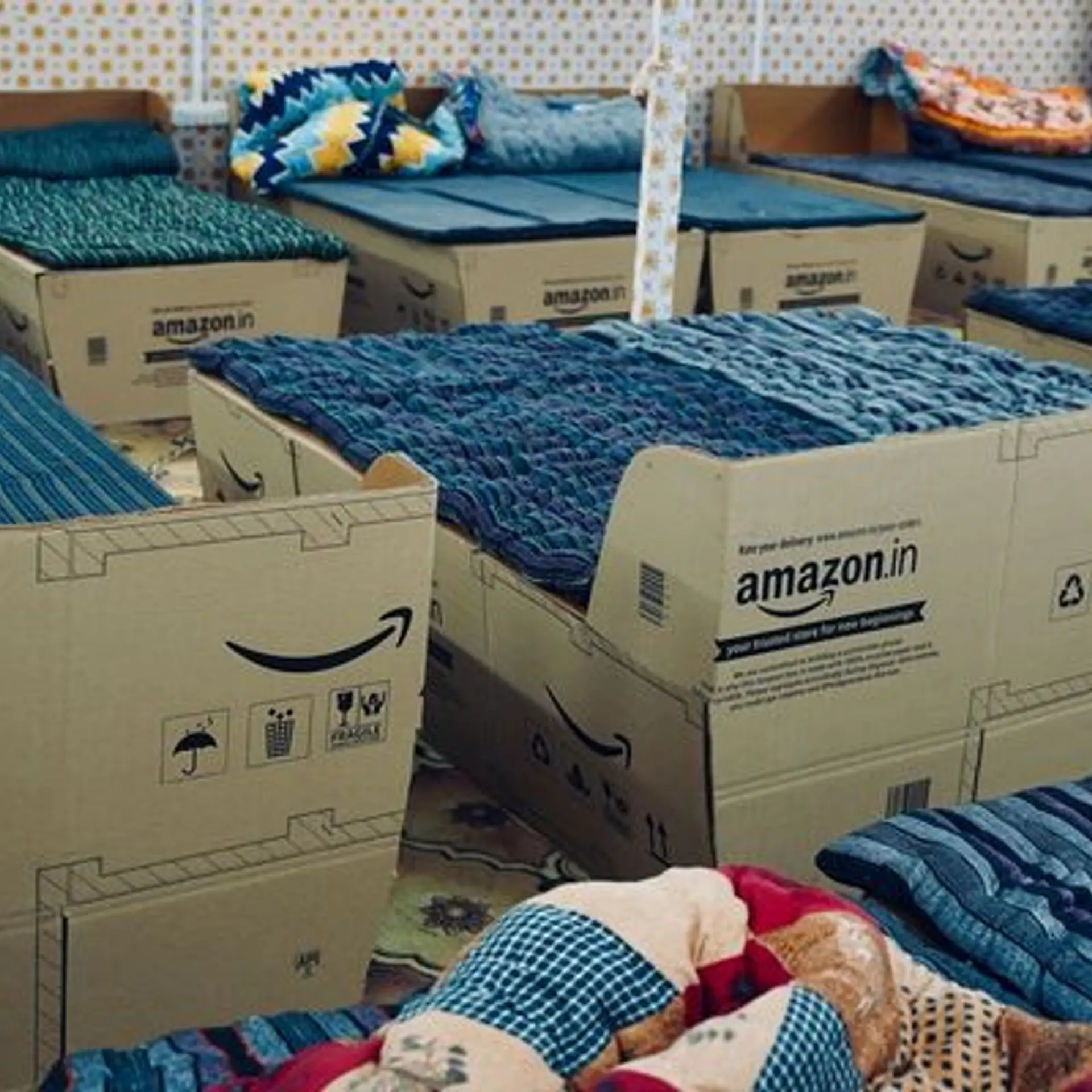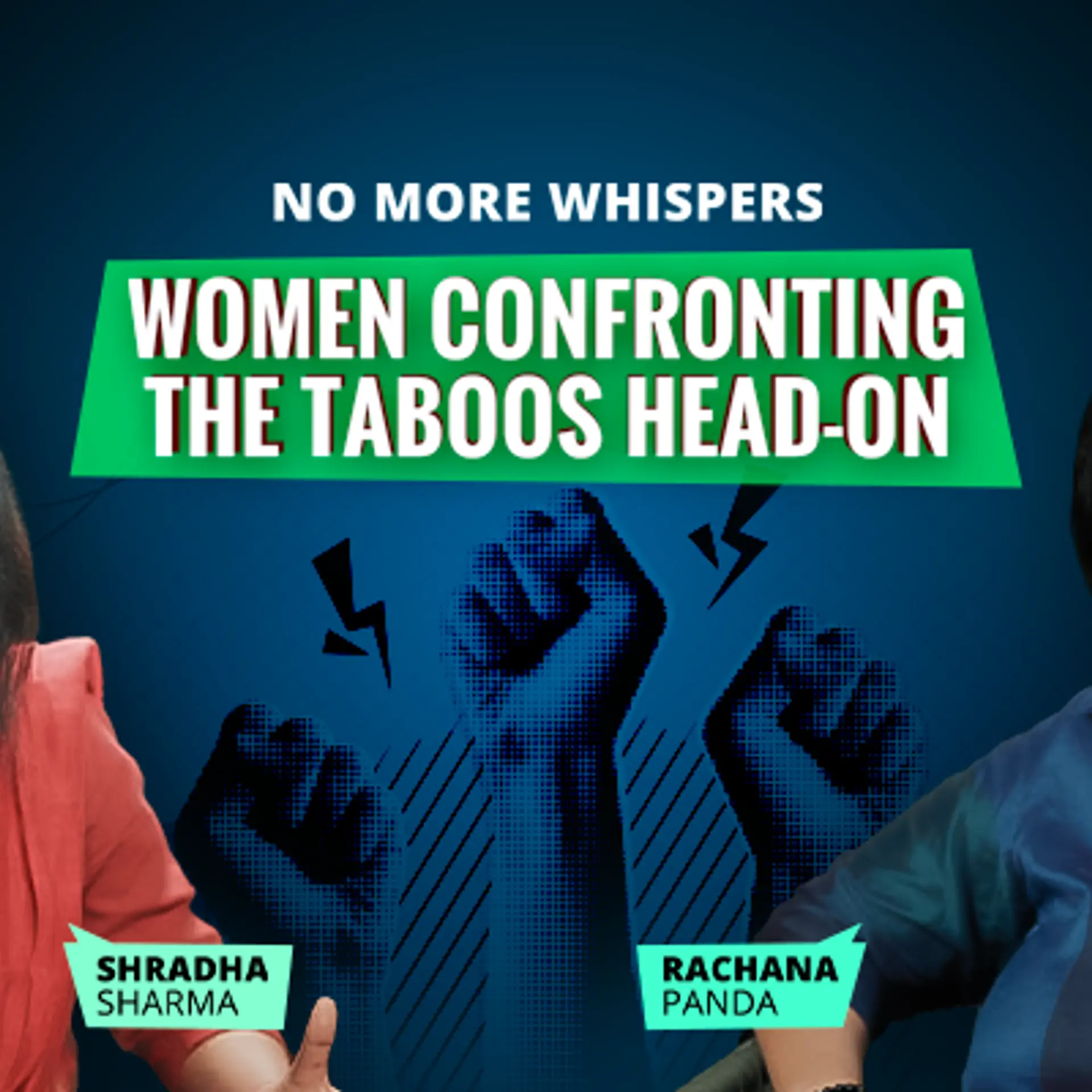Drop the beat: Meet Bollywood DJ Akbar Sami, who shows us how to mix it up right
In an exclusive interview, DJ Akbar Sami talks about his memorable performances, his favourite tracks and his online cloud clubbing initiative that was launched during the lockdown.
Akbar Sami is one of the most loved DJs in our country. Best known for his Bollywood remixes and original fusions of House and Trance Music and incorporating traditional Sufi and Qawwali melodies, he knows just how to lift up the spirits of a crowd and set the right tone for the evening.
He has been honoured with the DJ of the Decade Award in 2018 by the India Nightlife Convention, and is one of the only individuals to successfully make his mark in both films and outside the industry as well.
A dancer, and choreographer, and even a child actor, Akbar has always been a music buff, letting the rhythm and beat consume him and leaving both himself and his fans feeling euphoric.
Some of his popular tracks in collaboration with other leading artistes such as Sonu Nigam, Pritam, Himesh Reshammiya include Tandoori Nights, Chale Aao, Kabhi Kabhi, Qismat, Wave, Jalwa, Teri Meri Kahani, Aashiq Banaya Aapne, Ya Ali and Zindagi Ne Zindagi Bhar Gham Diye.
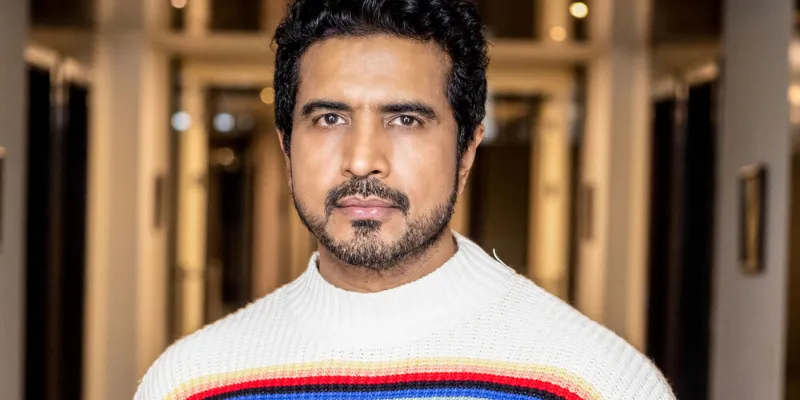
DJ Akbar Sami
Most recently during the lockdown, Akbar has been keeping the tunes flowing, through an online cloud clubbing initiative on his official Instagram and Facebook Live handles, as he believes ‘Music Never Stops.’
In an exclusive interview with YSWeekender, DJ Akbar Sami talks about his most memorable performances, the hard work that goes into being a Disc Jockey, and his recent online cloud clubbing initiative.
Edited excerpts from an interview:
YSW: Were you always passionate about music?
AS: Yes, I was always passionate about music since I was a child.
My father sent me to a music institute, and when I was in Standard 4 or 5, I loved to play skin instruments like the tabla, bongo, conga and djembe.
However, the teacher got me started on the harmonium, which is technically a good instrument to be exposed to, but I loved the sound of the percussion instruments.
I would bunk classes and keep playing on surfaces like the back of the bucket when I was having a bath, the wooden cupboards at home, while my older brother would sing along. I was very rhythmic as a child and my family knew it.
As I grew up, I got deeper into music, listening to Sufi music, qawwali and ghazals that my father listened to, and songs by James Brown and Whitney Houston that my brother used to listen to. I was also exposed to funk, soul, jazz and blues.
I appreciated both Indian and Western music from a young age, and it was such a blessing being brought up this way with my family also deeply involved in music.
All of this helped me when I started DJing. I already had a strong sense of rhythm and I knew a bit about music from what I had learned as a child. These influences shaped me a lot and I am grateful for them.
YSW: Can you tell us about early musical memory or perfaormance you look back on fondly?
AS: It all began in Bengaluru. I was DJing in small clubs in Mumbai called Xanadu and Studio 29, and Cavern when I first started my career.
However, I can never forget a place called UFO in Bangalore, which was a dome shaped club that could accommodate more than 7000-8000 people. When I played at that club it almost felt like a concert.
I was the leading star of the show. The night started at 10 pm and went on till 6 am in the morning. I was playing continuously, and it was such a brilliant experience that it can never be erased from my mind.
It was the first time I had performed in front of such a large crowd. There was no Bollywood music, but there was house music and tribal house music that I had got with me from London. It was amazing and nobody left, and people kept dancing the night away.
A show that I did in Goa, when I was touring for the Jalwa album launch also remains a pleasant memory. It was out in open air on the beach with a huge crowd turnout, and another band called Stereo Nation was also there performing at the same time.
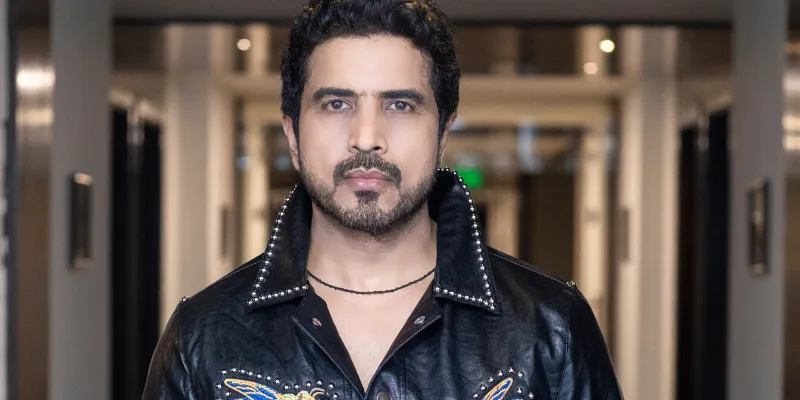
Akbar had an innate passion for music and rhythm growing up.
YSW: How did you first get spotted? And what was the experience like when you received the DJ of the Decade Award by India Nightlife Convention & Awards.
AS: I think I was spotted right when I was in school. I was in Standard 5, when I got a few film offers from producers. My dad was in the film space too and I was offered a lot of roles as a child actor. I did a film called Raampur Ka Lakshman, Naukri, and Ghar in my youth. This is when the working process started for me in my life.
I was also heavily into dancing and choreography, and after a few years Bharat Dabholkar who was directing a Broadway show called Bottoms Up, and Sons of Bottoms Up picked me up to choreograph his show. It was a super hit show and a great opportunity for me. It was at this show that I got spotted by JP Dutta who gave me the chance to choreograph Hathyar, a Sanjay Dutt starrer.
These things happened to me at a young age. I didn’t know how to do it as I was not a businessman, but I did it! I had a group of dancers who supported me such as Arshad Warsi, Farah Khan, Longinus Fernandes, and Ken Ghosh.
Two years ago, INC was very kind to look back on my journey as a musician and present me with the DJ of the Decade Award. It was an absolute honor, and I was so happy, excited, and thankful to Aman Anand and Riyaaz Amlani, and Viraf Sarkari who flew down to Delhi from Mumbai to present the award to me.
YSW: Who were some of your early icons and who is your inspiration now?
AS: As a kid I always appreciated the veterans in the industry, such as Usha Khanna and A.R Rahman. I was also really inspired by Nusrat Fateh Ali Khan, besides which S D Burman and R D Burman have been my all-time favourites.
Internationally, I am inspired by Marvin Gaye, James Brown, R Kelly, Yanni and a group called Yellow.
In the film world, I find that Balraj Sahni and Prithvi Raj Kapoor are phenomenal actors, and Dilip Kumar, Amjad Khan, Irrfan Khan, Naseeruddin Shah, Tabu, Kangana Ranaut are also excellent actors.
When it comes to DJs it would have to be Carl Cox, Carl Craig, Thomas Gold, and Chris Lake.
YSW: What are some of the singles you have collaborated on and can you name your favourite track?
AS: I have collaborated with nearly everyone in the industry, but to name a few it would be Just Chill and Ashik Banaya Apne with Himesh Reshammiya, Chale Aao with Sonu Nigam, Jhalak Dikhla Ja and 36 China Town.
I did two tracks, singles with Mithun for a film called The Train, Woh Ajnabee and Zindagi Ne Zindagi Bhar Gham Diye. I did Jee Le with Adnan Sami and Ya Ali with Pritam, Awara Paagal Deewana (the film) all the songs with Anu Malik.
My favourite track would be Zindagi Ne Zindagi Bhar Gham Diye. I like this track because of the way that it was designed, and the lyrics that were so beautifully penned down.
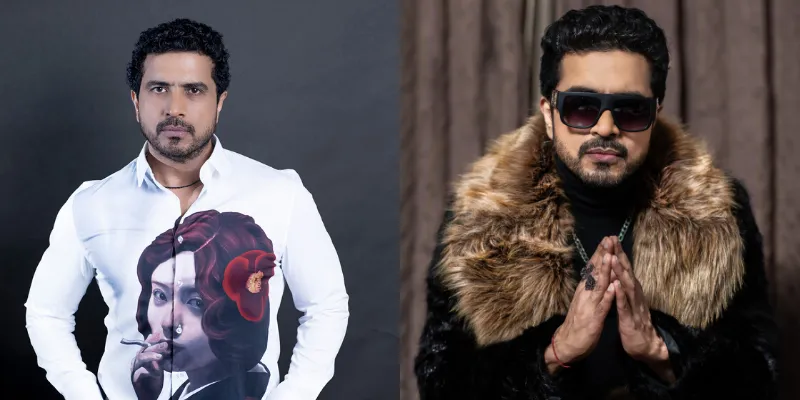
Akbar has composed his own singles as well as collaborated with leading music artists in Bollywood.
YSW: Which is a top destination you have liked visiting and a musical performance by a singer or DJ that you have loved?
AS: Karbala in Iraq is a place that I miss, and even though it is a pilgrimage destination I would have been there right now if not for the lockdown. Otherwise it is San Diego in the United States. I would go there in an instant with my eyes closed.
I love the vibe of the city and have so many wonderful friends there. The beaches are fantastic, and every year when I go on a US tour, I make sure that I spend a lot of time in San Diego and Los Angeles where my sister lives.
A Bryan Adams performance, an all India tour was one that I loved, as I was given the opportunity to be the opening DJ and I got to tour with this amazing artiste and his team. Another event I loved was a performance with Sonu Nigam, in a two-artiste show in Miami. It was a fabulous event.
YSW: What is your message to fans dealing with the COVID-19 lockdown and pandemic.
AS: I have a suggestion that was given to me by a well-known doctor on a conference call which is, that the only thing that can save you from this virus is your immune system, and to do that you have to build up your immunity.
So how you can go about doing that, is by keeping yourself hydrated, drink two cups of milk everyday with haldi (turmeric), Nimbu Paani (lemon juice) and hot teas as much as you can. Drink fresh fruit juices containing Vitamin C, A, D, and take neem and tulsi tablets. Have kalonji (fennel) with honey on an empty stomach in the morning and this is magical.
Use this time to reinvent yourself, gain knowledge, read and spend this time that you have with your loved ones and family members. Be positive and think about innovative things that you can do when you come back to work. Be a new person, and make a change in your life, because this time you have is never coming back. So, utilise it well for betterment and stay away from negativity and hate.
YSW: Tell us a little bit about your cloud clubbing online gigs amidst the lockdown. How does one join?
AS: Cloud clubbing is a beautiful new thing that we have discovered during the lockdown, and why I say it is beautiful is because we get to interact with the entire globe. It is not like DJing on a console for a particular audience at a venue, but tuning in to tracks from all over.
Sufi Music and House music combined is something people loved on my cloud playlist.
I go Live on Facebook and Instagram simultaneously on my personal handle, and I encourage people to join in and have fun!
Adnan Ali and I are doing a show incorporating sher shayari and poetry.
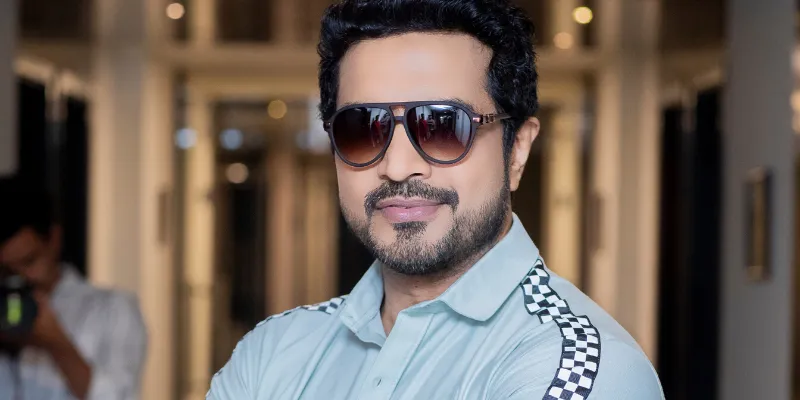
Tune into cloud clubbing on his Instagram and Facebook Live to be up to date with the music world.
YSW: What is your advice to those aspiring to become DJs.
AS: Learn it but learn it from the right institutes. Don’t take a private course or from someone who says they will teach you how to become a DJ. Nobody is going to teach you real DJing in India, except for a few.
There is an Institute called DJ School by Clement D’ Souza in Bangalore, and one in Hyderabad called Panache Institute by Piyush Bajaj. DJ Suketu has an institute called the School of Spin which is good.
However, if you see a name somewhere on the internet, be sure that it is authentic, because people who are not trained can’t train you.
Get into it with the advice of your elders, because this job is not a 9 to 5 job, it is a 24-hour job. Music doesn’t stop internationally, so you don’t stop work. It takes a lot of patience and effort to collect your music, make your sets and decide what kind of genre you need to go into, and discover the personal genre that you like.
If you like House Music, EDM, Tech, Trance, Tribal Trance, Hip-Hop, R& B, Soul, Funk, Reggae, Rock, or even Bollywood there is so much out there. People in India go for Bollywood thinking it is easy, but it is not, sometimes you need to play for over five to six hours.
You need to have the knowledge of where to start, what you are going to do, and when to play what. This is very important and to learn this you will have to undergo adequate professional training.
The most important thing is to have a sense of rhythm and a passion for music.
YSW: Any singles you are currently working on? And what do we hope to witness in the months ahead.
AS: I had started on a couple of projects before the lockdown. There’s a song called Tu Meri Senorita which is a Spanish, English and Punjabi song which I am working on and I am singing myself.
Then there is a song called Dum Duma Dum Dum which is a Qawwali Q Funk, which is interesting and new.
There are two film projects with running water films that we are currently in the process of writing.
One is called Padharo Mare Desh which is about Indian culture and values of the Indian family, and Patang Baaz which is a sporty film on kites.
These are two films that we have written and are currently working on, and waiting to start casting and go for shoots once lockdown ends.
YSW: What do you enjoy doing most on the weekend in your free time besides DJing?
AS: I always have something up my sleeve, either I am creating music or thinking of something new. I am a gym freak. I work out on my terrace now and go for jogs.
I love water sports, and I read a lot. I do my prayers five times a day and spend a lot of time with my family.
I have been using this time to keep in touch with friends and loved ones.
Edited by Asha Chowdary



